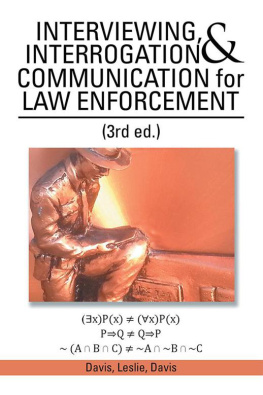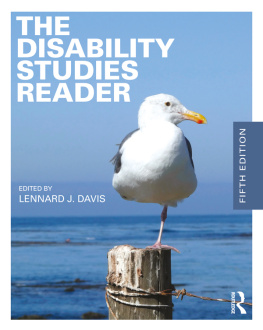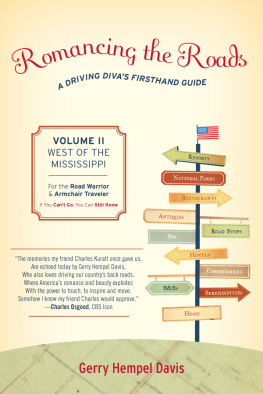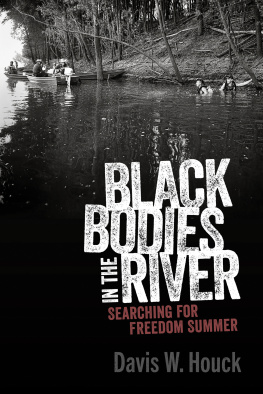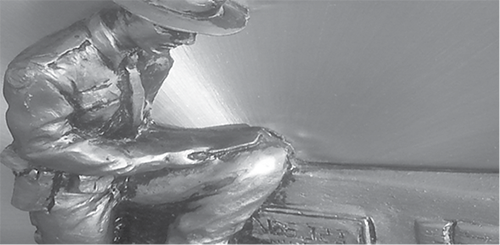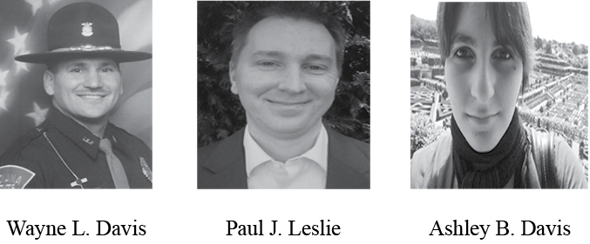Davis - Interviewing, Interrogation & Communication for Law Enforcement
Here you can read online Davis - Interviewing, Interrogation & Communication for Law Enforcement full text of the book (entire story) in english for free. Download pdf and epub, get meaning, cover and reviews about this ebook. year: 2014, publisher: Xlibris US, genre: Romance novel. Description of the work, (preface) as well as reviews are available. Best literature library LitArk.com created for fans of good reading and offers a wide selection of genres:
Romance novel
Science fiction
Adventure
Detective
Science
History
Home and family
Prose
Art
Politics
Computer
Non-fiction
Religion
Business
Children
Humor
Choose a favorite category and find really read worthwhile books. Enjoy immersion in the world of imagination, feel the emotions of the characters or learn something new for yourself, make an fascinating discovery.
- Book:Interviewing, Interrogation & Communication for Law Enforcement
- Author:
- Publisher:Xlibris US
- Genre:
- Year:2014
- Rating:4 / 5
- Favourites:Add to favourites
- Your mark:
- 80
- 1
- 2
- 3
- 4
- 5
Interviewing, Interrogation & Communication for Law Enforcement: summary, description and annotation
We offer to read an annotation, description, summary or preface (depends on what the author of the book "Interviewing, Interrogation & Communication for Law Enforcement" wrote himself). If you haven't found the necessary information about the book — write in the comments, we will try to find it.
Interviewing, Interrogation & Communication for Law Enforcement — read online for free the complete book (whole text) full work
Below is the text of the book, divided by pages. System saving the place of the last page read, allows you to conveniently read the book "Interviewing, Interrogation & Communication for Law Enforcement" online for free, without having to search again every time where you left off. Put a bookmark, and you can go to the page where you finished reading at any time.
Font size:
Interval:
Bookmark:
INTERVIEWING, INTERROGATION (3rd ed.)
(x)P(x) (x)P(x) PQ QP ~ (A B C) ~A ~B ~C Davis, Leslie, Davis INTERVIEWING, (3rd ed.) ( x)P(x) ( x)P(x) P Q Q P ~ (A B C) ~A ~B ~C Wayne L. Davis, Ph.D. Paul J. Leslie, Ed.D. Ashley B. Davis Copyright 2014 by Davis, Leslie, Davis. Library of Congress Control Number: 2014916548 ISBN: Softcover 978-1-4990-6587-9 eBook 978-1-4990-6588-6 All rights reserved. No part of this book may be reproduced or transmitted Any people depicted in stock imagery provided by Thinkstock are models, Certain stock imagery Thinkstock. Rev. date: 06/05/2017 Xlibris 1-888-795-4274 www.Xlibris.com 552545 PREFACE This book provides an overview of effectively collecting, understanding, and presenting information. First, this book examines various situations via math, grammar, and logic. It is important for officers to apply math and English to the law so that they may be able to effectively articulate their actions in court. For example, laws and police actions can be evaluated via truth tables and Venn Diagrams. Second, this book discusses interrogation techniques and body language. Manipulating a suspect and collecting the right information in a legal and effective manner is a part of police work. Third, this book presents a deposition. The defense lawyer may ask certain questions in order to discredit the officer or to undermine the officers report. Police officers should ask themselves the purpose of each question that is being asked during a deposition. Fourth, this book presents some resume information and typical job interview questions for potential police officers. Knowing what kinds of questions will be asked during an interview and effectively communicating to potential employers is essential. Fifth, this book discusses code information and handwriting comparisons. Code information may be important in a prison environment and handwriting comparisons allows for a totality of circumstance exercise. Sixth, this book discusses assumptions and limitation associated with information. Magic is a useful tool to demonstrate how flawed assumptions may lead to inaccurate conclusions. Seventh, this book provides a table that can be used to generate impromptu speeches. Various words can be randomly selected and the reader can use the words to create a short story. Eighth, this book discusses how to handle situations that deal with special situations and individuals who have disabilities. Finally, this book discusses various search techniques for evidence collection. AUTHORS Wayne L. Davis, Ph.D. Wayne L. Davis holds a Bachelor of Science in Electrical Engineering from the University of Michigan-Dearborn, a Master of Science in Business Administration from Madonna University, and a Ph.D. in Criminal Justice from Capella University. In addition, Dr. Davis has earned a helicopter pilot license, an advanced open water scuba diver certification, a technician plus amateur radio license (N8ZFG), and a basic emergency medical technician certificate from the State of Michigan. Dr. Davis has graduated from city, state, and federal law enforcement academies: Schoolcraft College in Livonia, Michigan, the Indiana Law Enforcement Law Academy, and the Federal Law Enforcement Training Center. He has over 20 years of law enforcement experience with city, state, and federal law enforcement agencies. Dr. Davis has earned the U.S. Customs & Border Protection Commissioners Award, the U.S. Customs & Border Protection Scholastic Award, the highest test score when officers in his Indiana State Police graduating class were assessed, and appointment to a field-training officer by the Indiana State Police. While he worked as a product design engineer at Ford Motor Company, Dr. Davis introduced the electronic engine control module into the pleasure boat industry. This included writing a product specification manual and performing test-to-failure statistical research. As a result, Dr. Davis was nominated for the Ford Motor Company Electronics Division Worldwide Leadership Excellence Award. Subsequently, this led to his research paper called, A Study of Factors Affecting a Supply Decision by the Ford Motor Company International Division for Original Equipment . In addition, Dr. Davis has conducted two academic research studies called, A Correlational Study of Childhood Religiosity, Childhood Sport Participation, and Sport-Learned Aggression among African American Female Athletes and The Effect of Application Based Training on the Emotional Intelligence of Criminal Justice Students . Dr. Davis has also published several textbooks, which include a) Report Writing for Police Officers, b) Police-Community Relations: Different Lenses & Perceptions of Truth, c) Critical Thinking: Totality of Circumstances, and d) Terrorism, Homeland Security, and Risk Assessment via Research Proposal . Recently, Dr. Davis has created table top police scenes for which he has filed a patent. In addition, he has served as the Academic Coordinator for the Criminal Justice and Human Services Programs at Aiken Technical College in Aiken, SC. With the support of local law enforcement agencies, Dr. Davis has created an application-based criminal justice program that meets the needs of the local community. Paul J. Leslie, Ed.D. Paul J. Leslie holds a Bachelor of Arts in History from Armstrong Atlantic University in Savannah, Georgia and a Doctorate in Counseling Psychology from Argosy University in Sarasota, Florida. Currently, he serves as Academic Coordinator of Psychology at Aiken Technical College where he is also an advisor in the Human Services degree program and teaches courses in abnormal psychopathology, substance abuse counseling, and interviewing techniques. Dr. Leslie is a Licensed Counselor and a Human Services - Board Certified Practitioner. He has a private practice in counseling, coaching and clinical hypnotherapy in Aiken, South Carolina. Dr. Leslie is the co-author of Critical Thinking: Totality of Circumstances , The Effect of Application Based Training on the Emotional Intelligence of Criminal Justice Students , and Get Out of Your Seat: An Average Passengers Guide to Overcoming Airline Terror. Ashley B. Davis Ashley B. Davis is currently pursuing a bachelors degree in French and Japanese at Michigan State University. Currently she works for the Natural Sciences Department at Michigan State University, she is the undergraduate representative for the Romance and Classical Studies Department for French majors, she is the webmaster for the French Club, and she is a member of the Anime and Japan Clubs at Michigan State University. In the future she wishes to become an interpreter.
Contents Below is a summary of select Constitutional laws
|
Font size:
Interval:
Bookmark:
Similar books «Interviewing, Interrogation & Communication for Law Enforcement»
Look at similar books to Interviewing, Interrogation & Communication for Law Enforcement. We have selected literature similar in name and meaning in the hope of providing readers with more options to find new, interesting, not yet read works.
Discussion, reviews of the book Interviewing, Interrogation & Communication for Law Enforcement and just readers' own opinions. Leave your comments, write what you think about the work, its meaning or the main characters. Specify what exactly you liked and what you didn't like, and why you think so.

